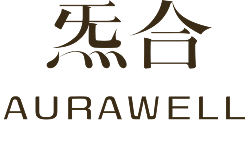
Higher Self: Unlocking the Most Powerful Version of You
Share
The term higher self might sound spiritual or even mystical, but it’s actually a deeply practical concept rooted in philosophy, psychology, and personal development.
Whether you call it your inner guide, true self, or higher consciousness, your higher self represents the wisest, calmest, and most authentic part of who you are. It’s the voice that knows what’s right even when your emotions cloud your judgment.
So what exactly is the higher self, where did the idea come from, and how can it help us lead more fulfilling lives?
What Is the Higher Self?
Your higher self is the part of you that operates beyond fear, ego, and impulse. It sees the bigger picture. It’s the you that exists when you're deeply aligned with your values, when your decisions come from clarity and compassion, not reactivity or social conditioning.
Unlike the “lower self” — which is often driven by survival instincts, insecurity, and attachment — the higher self operates with presence, intention, and inner peace. Psychologists like Carl Rogers have described this state as an alignment of the “real self” and the “ideal self,” which drives self-actualization.
Think of it as the inner compass that points you toward growth, meaning, and long-term fulfillment.
Where Did the Concept Come From?
The idea of the higher self isn’t new. It has appeared in various forms across:
- Ancient spiritual traditions – In Hinduism and Buddhism, it’s closely related to the concept of the Atman or Buddha nature.
- Western philosophy – Plato wrote about a realm of ideal forms, which the soul longs to reconnect with.
- Modern psychology – Carl Jung referred to the “Self” as a central organizing principle of the psyche. Abraham Maslow's idea of self-actualization and peak experiences also parallels the higher self.
- Positive psychology – Research on self-transcendence (Dr. David Yaden, Johns Hopkins University) shows how connecting with values beyond the self leads to resilience and well-being.
- New Age thought – In contemporary spirituality, the higher self is often considered a bridge to universal consciousness or divine wisdom.
Despite the variety of interpretations, the essence remains the same: there is a deeper, wiser layer of your identity guiding you toward your best self.
How Many Layers of Self Are There?
Many frameworks divide the self into three primary layers:
- Lower Self – reactive, emotional, survival-based (ego, fear, habits)
- Middle Self – your everyday identity and decision-making mind
- Higher Self – your core essence, observing mind, or soul-like awareness
Some systems, like yoga or energy healing, expand this into five or seven layers (including the physical, emotional, mental, intuitive, and spiritual bodies), but for personal growth, this three-part model is easy to work with.
Can the Higher Self Be Changed?
The higher self is not something you change — it’s something you uncover. It already exists within you. But like a radio signal, your connection to it can be weak or strong depending on your awareness, lifestyle, and beliefs.
However, your relationship with your higher self can evolve. You can grow more attuned to it, align your actions with it, and reduce the noise from the lower self that blocks it out.
How to Strengthen and Align with Your Higher Self
Here are several evidence-based and holistic methods to reconnect with your higher self:
1. Meditation and Mindfulness
Quieting the mind helps you detach from the ego’s chatter and listen to the voice beneath it — your higher self. Even 10 minutes of breath-focused meditation a day can shift your awareness. Research shows mindfulness reduces stress and increases clarity.
2. Journaling and Self-Inquiry
Asking questions like “What would my higher self do in this situation?” or “What do I deeply value?” helps bring clarity and alignment.
3. Shadow Work
By confronting unconscious fears, wounds, and patterns (the realm of the lower self), you create space for the higher self to emerge. Jung’s idea of “shadow integration” is central here.
4. Acts of Integrity and Compassion
Every time you choose authenticity over approval, or kindness over anger, you're strengthening your higher self’s influence.
💡 Meditation teachers like Anthony Profeta and Yogi Dawn share practical visualization techniques to “meet your higher self,” offering direct, experiential tools for daily life.
Emotional Impact of the Higher Self
Your higher self isn’t just a mental concept—it has real emotional consequences. When you're aligned with it, you often experience:
- Inner peace
- Confidence not based on external validation
- Reduced anxiety or reactive anger
- A deep sense of meaning
In contrast, when you’re disconnected from it, you may feel lost, stuck, or emotionally chaotic. Recognizing this shift can be the first step toward reclaiming your joy.
Can It Make Us Happier?
Absolutely. Studies in positive psychology show that people who feel guided by a “higher” inner purpose or value system report greater life satisfaction, resilience, and well-being.
When your daily actions reflect your higher values, your life feels coherent — and coherence breeds contentment.
Recommended Books and Research
- The Untethered Soul by Michael A. Singer
- Man’s Search for Meaning by Viktor Frankl
- The Power of Now by Eckhart Tolle
- Carl Jung’s writings on individuation and the Self
- Research on self-transcendence by Dr. David Yaden (Johns Hopkins University)
Final Thoughts
Your higher self is not some faraway spiritual concept — it’s a practical source of guidance that’s already within you.
Whether you're facing a tough decision, struggling with emotional overwhelm, or simply searching for more meaning, tuning into your higher self can help you respond with clarity, purpose, and peace.
You don’t need to “become” your higher self — you only need to remember it. The more you listen, the louder it becomes.
✨ Consider our Self-Awareness Herbal Incense — a calming blend formulated to deepen introspection and connect you with your higher self. Ideal for meditation or journaling, it’s designed to create space for clarity, presence, and inner wisdom.
